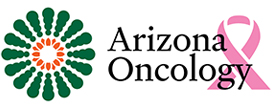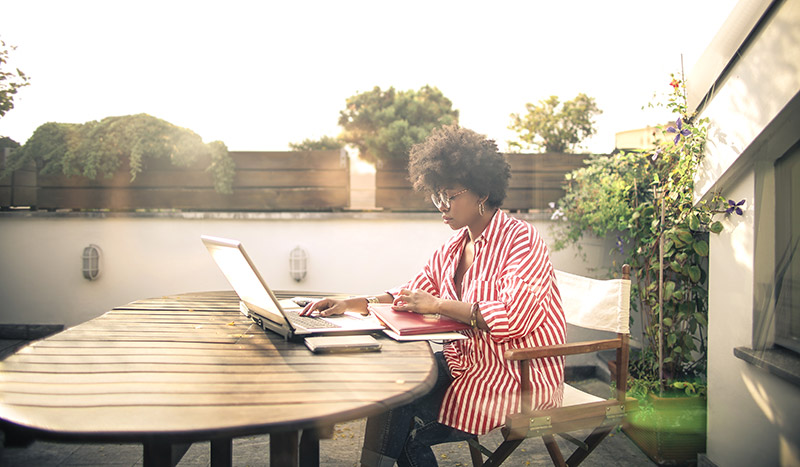More people than ever are working from home. Some of the perks that come with this working from home include flexible hours, spending more time with family, and leaving your commute behind. Unfortunately, you could also be exposing yourself to additional skin cancer risks that you don’t normally face. Watch for these risks and use practical tips to prevent extra sun exposure while working from home.
1. You’re More Relaxed
Relaxing definitely doesn’t put you at a higher risk of cancer. However, as you make changes to your daily routine, you may relax certain daily habits that go along with your work schedule. For many people, the daily application of sunscreen comes during the process of getting ready for work. Changing that schedule could mean forgetting this essential protection. With practically 300 sunny days in Arizona each year, letting your guard down means letting skin cancer risks in.
Maintaining Important Health Regimens
There’s no denying that a flexible schedule is one of the biggest benefits of working from home. Still, your health should never take a back seat. No matter what your daily routine looks like, make sunscreen application a priority. Associate sunscreen with another morning habit you never forget like taking medication or brushing your teeth.
2. Working Outside the Office
Even if your workplace promotes the most flexible working style in the area, most work hours are spent indoors. The flexibility of working from home may inspire you to take breaks outside, take walks during the day for exercise, or work outdoors on your deck or patio. The sun’s rays are strongest between 10:00 AM and 4:00 PM. Many workers are accustomed to spending this time inside the workplace. When you’re not spending these hours within the confines of a work building, you are likely accumulating extra hours of sun exposure.
Staying Safe Out of the Office
Learning the facts about skin cancer and the most effective ways to prevent it is key to avoiding dangerous habits. Chart the unexpected time you’re spending outdoors and how often you apply sunscreen. For sunscreen to be effective, it must be used correctly. Use these tips to get the best defense with sunscreen.
- Apply sunscreen to dry skin 15 to 30 minutes before going outdoors.
- Use sunscreen with an SPF of 30 or higher.
- Get a new bottle of sunscreen each year. The ingredients in sunscreen break down over time and become less effective.
- Use a teaspoon for your face and neck and enough to fill a shot glass for the rest of your body. When in doubt, add more.
- Reapply sunscreen every 90 minutes while outdoors. Always reapply sunscreen after swimming or after excessive sweating.
- Don’t skip those easily forgotten places like your ears, the back of your neck, and tops of your feet.
- Use sunscreen even on cloudy days.
3. Spending Time Outside With the Kids
You’re not at work and the kids aren’t at school. Suddenly, your priorities shift and everyone is outdoors in the Arizona sunshine. There is an abundance of benefits to spending time outside like exercise and fresh air, but these extra hours outdoors add up when it comes to sun exposure. An hour or two of unplanned time outdoors can lead to dangerous sunburns and skin damage. Even a few sunburns can increase your children’s risk of skin cancer.
Safe Skin Habits for You and Your Children
Safe health habits start early and remain consistent. The same way you stop to wash your hands before eating or put on a jacket when there’s a chill in the air, you should stop to put on sunscreen before going outdoors. Sunscreen should be applied to dry skin at least 15 minutes before going outside and reapplied every two hours or immediately after swimming or sweating. Additional ways to stay safe include spending time in the shade, wearing protective clothing, and wearing a hat and sunglasses.
4. Lack of Task Lighting
If you’ve recently moved from a brightly lit workplace, your new “office space” might be right next to a window to take advantage of natural light. While natural light is often preferable to harsh fluorescent lighting, dangerous UV rays can penetrate glass to cause damage to your skin and put you at a higher risk for skin cancer.
Safe Use of Natural Lighting
Eliminating natural light completely would be a shameful waste of Arizona’s natural resources. Glass does provide some protection from the sun’s rays, so you don’t need to board up the windows. Applying sunscreen daily and sitting by a window that doesn’t provide direct sunlight is likely enough to protect your skin indoors. If your only home office option is near a window that sees an abundance of direct lighting, consider UV blocking window film for added protection.
5. No More Uniforms
Whether your workplace requires a standard uniform, business attire, or certain dress code rules, that wardrobe goes out the window when you work from home. Your personal wardrobe reflects your sense of style and, more often than not, the weather outdoors. Unfortunately, this often means that your casual clothing leaves more skin exposed to the elements than the clothes you typically wear to work.
A Uniform for Working Outdoors
You don’t need a uniform to work at home, but a type of dress code is necessary when you’re spending time outdoors. Your best line of defense against the sun’s harmful rays is a physical barrier of clothing. Tightly woven dark fabrics provide the most protection. Additional accessories can add an extra layer of protection. A wide brim hat and sunglasses provide a shield for delicate facial skin.
Working from home means a change in your routine. While you’re getting used to these changes, it’s important to take precautions that will protect your skin from the sun’s dangerous UV rays. Skin cancer is the most common cancer diagnosis and also the most preventable. Forming habits to protect your skin is the best way to prevent a skin cancer diagnosis.



